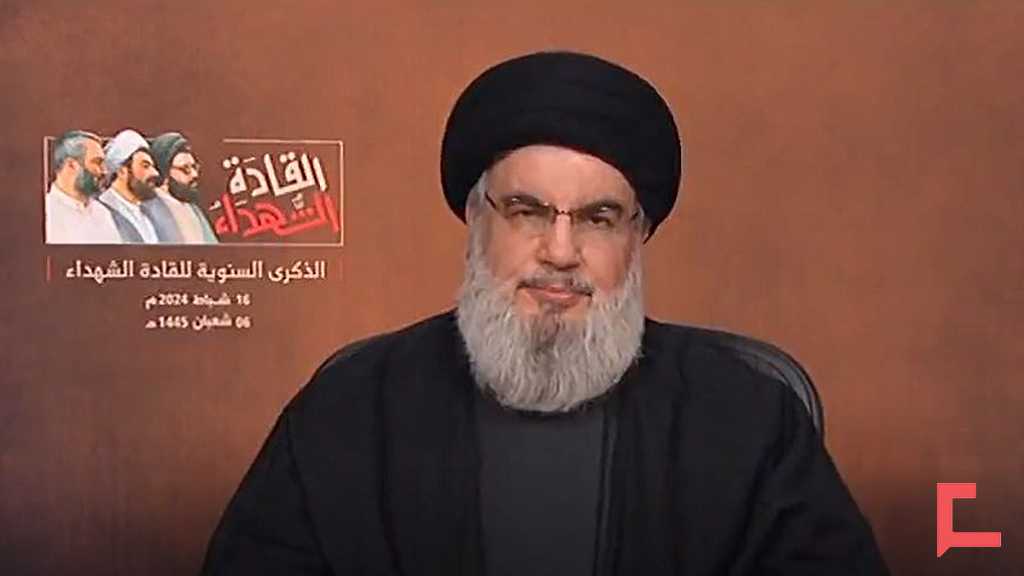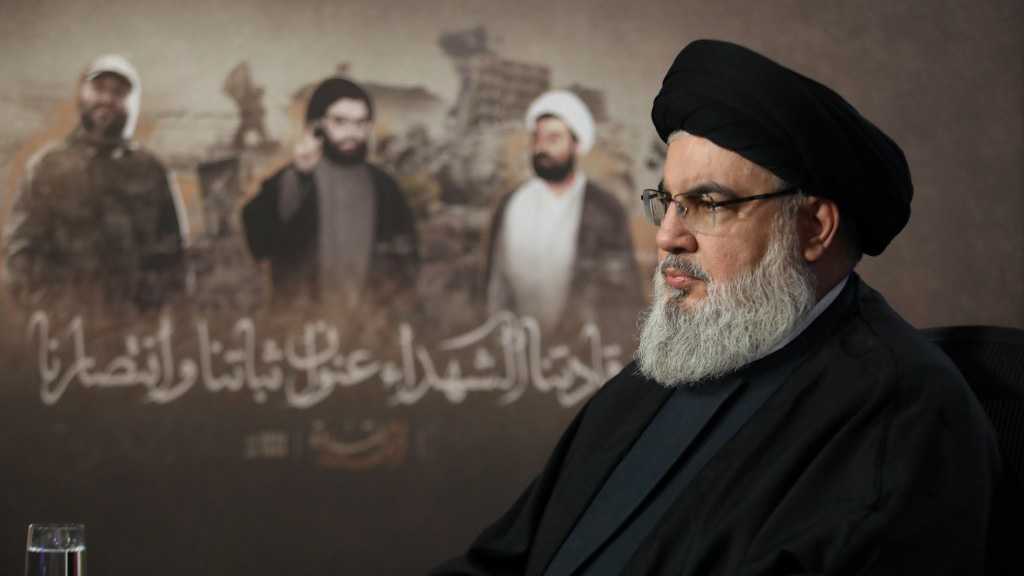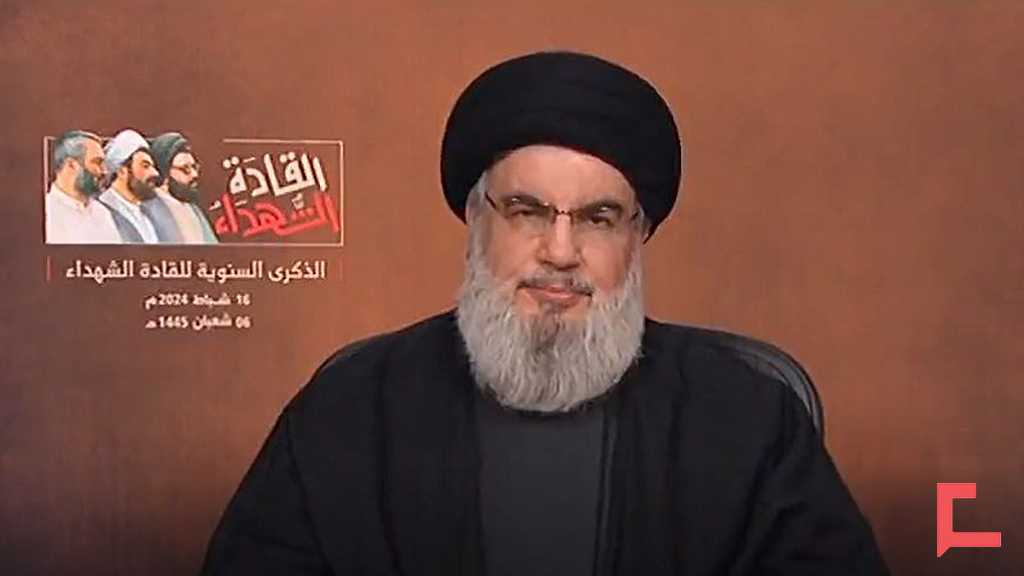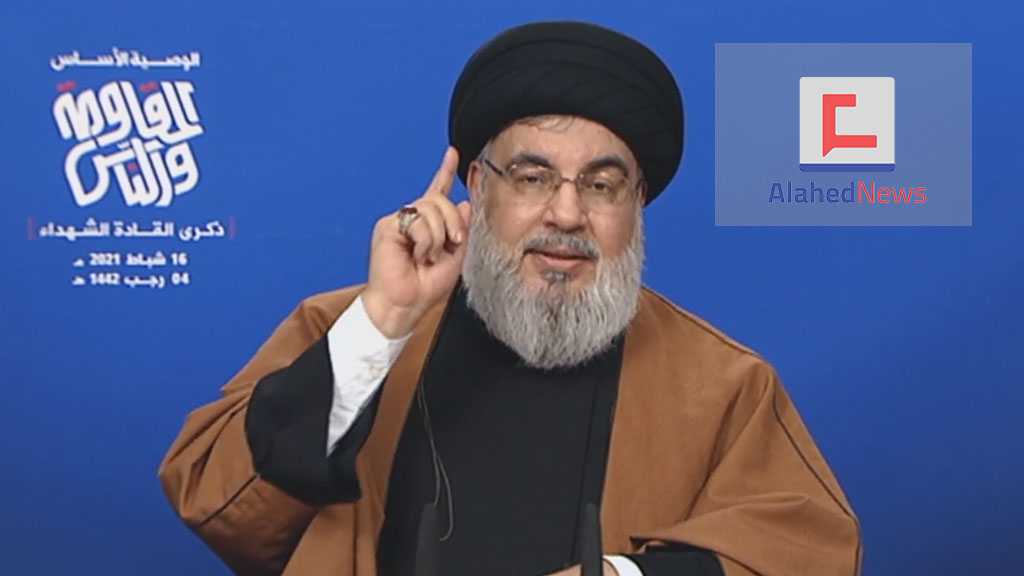Imam Khamenei’s Defense Advisor Tells Al-Ahed of Martyr Leaders, Fate of the Region
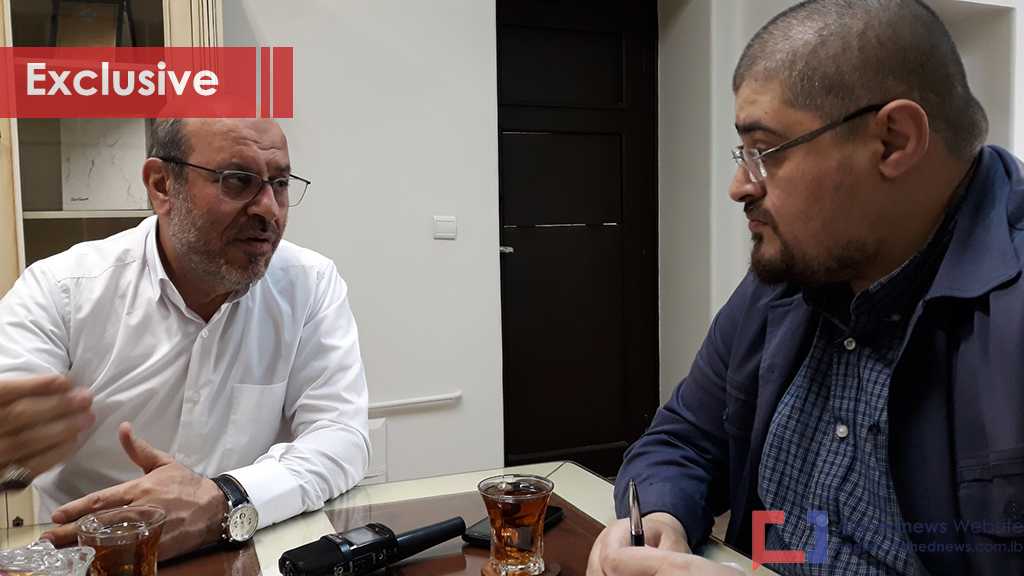
By Mokhtar Haddad
Tehran - Brigadier General Hossein Dehghan was among the first members of groups linked to the Revolutionary Guards to come to Lebanon and the official who supervised the training of Hezbollah mujahideen. He witnessed the founding of the Islamic Resistance and lived with its martyred leaders. He is also Leader of the Islamic Revolution His Eminence Imam Sayyed Ali Khamenei's advisor on defense and Iran’s former minister of defense.
In an exclusive interview with Al-Ahed, Brigadier Hussein Dehghan talks about his memories with the leaders of the martyrs of the Islamic Resistance and Lieutenant General Hajj Qassem Soleimani. He also recalls how he founded the Al-Ahed newspaper – currently Al-Ahed news site – as he discusses recent developments in the region.
Below is the full transcript of the interview:
You have witnessed the establishment of the Al-Ahed newspaper. In marking 35 years since the paper was established, what does our veteran colleague remember about how it all started?
The conditions that Hezbollah faced early on helped in forming the organization. But considering Lebanese culture, if you want to stimulate a political course in Lebanon, you have to appoint a spokesperson and define the media as its own cultural apparatus in order to connect with the people. At the time, anyone could claim that he belonged to Hezbollah and say whatever he wanted. The goal was to create an information outlet.
When this suggestion was presented to His Eminence, Sheikh Mohammad Yazbek, he opened the Quran and found the following verse {And do not approach the property of an orphan, except in the way that is best, until he reaches maturity. And fulfill [every] commitment. Indeed, the commitment is ever [that about which one will be] questioned.} So, the newspaper was called Al-Ahed. The paper’s editorial team was appointed, and it started worked to publish two to three issues per week. The newspaper was widely admired by all Hezbollah members. Within a short period of time, the newspaper grew within the Lebanese media sphere. After that we set up a radio station in Baalbek. The station often broadcast recitation of the Holy Quran and announced to its listeners the station’s frequency. Martyr Hjaiji was appointed as the station's director and Abu Hisham as its political director. It was necessary for the party to establish ties with the Lebanese society to be able to share its opinions and ideas.
Going back to Al-Ahed, what impressed me was that we had two young Iranian men who wrote in Arabic even though they were literally translating from Farsi. When the late Ayatollah Sayyed Mohammad Hussein Fadlullah read what they wrote, he exclaimed: ‘You are writing in Farsi. You should try to write in Arabic.’ And Sheikh Yazbek helped the editorial team become better in writing and played an important role in Al-Ahed.
How would you define the progress by the resistance in the media sphere?
We did not face a lot of problems because there was a natural need for this outlet and it took a lot of time for our work to be coherent and purposeful. Even with regard to the formation of Hezbollah, it was important that the movement was formed in Lebanon. At the time, there were various groups in Lebanon that needed to be integrated and organized, and most of them joined Hezbollah.
The formation of Hezbollah itself was a historic and temporal necessity. Today, after thirty-five years, media outlets must be able to convey the party’s message to the target audience using artistic and technical means and through appropriate content because in Lebanon, Hezbollah is engaging in a political society that is prone to radical change. What is happening in Lebanon is moving more rapidly towards renewal and change than anywhere else in the world. For this reason, anyone who wants to work in media must familiarize themselves with the environment in order for them to work well and present their message and be able to communicate effectively. We created Al-Ahed newspaper so that it could work as a spokesperson for Hezbollah. Now, thank God, Hezbollah is in a position where any member linked to Hezbollah can have a significant impact inside and outside Lebanon.
How do you evaluate the resistance’s media in facing the cultural and soft war?
This is normal in political affairs and the Lebanese society. This matter started before and has continued until now. And the active political movements in Lebanon have a form of unlimited support without exception, and they have a form of representation. Today, the only political movement that is completely Lebanese is Hezbollah. Today, the Lebanese people do not view Hezbollah as merely a Shiite political movement, but rather a symbol of Lebanese national resistance in the face of the Zionist aggression and regime.
Today, the Lebanese Hezbollah is defined as the Lebanese people’s public conscience towards dignity, independence and freedom, and these types of causes. We can also say that Hezbollah plays a role in defining everything that matters in Lebanon’s political and social arena. Some say that ‘this is because Hezbollah has strength and weapons’. But this is not the root of the matter. Rather, the principle is that Hezbollah has proven its ability in preserving and developing Lebanon's national interest, in addition to bearing all necessary costs. However, the sensitivity of Hezbollah's behavior is also important. It leaves no room for confusion over representation and the private thoughts of the Lebanese people. Thanks to the wise leadership of Sayyed Hassan Nasrallah, he managed to preserve Hezbollah and always influence Hezbollah's dignity and influence in politics as well as the social and cultural aspects in Lebanon.
What is the impact of Al-Ahed or other Hezbollah media outlets on the resistance?
This effect is fundamental and is the essence of the resistance. And that is what it is.
You lived with the master of the martyrs of the resistance, Sayyed Abbas Al-Mousawi. Can you tell us about the martyr and your memories with him?
No one could be like him. We had an office near his house. He possessed special qualities that made him special. The first is that Sayyed’s rule was realistic and unparalleled, not only because he was cultured, but also because his relationship with the leader of the Islamic revolution and his adherence to him was never shaken.
The second quality is that any behavior or decision emanating from him was in accordance with Islam. He was always trying to mirror the teachings of Islam in his words and actions. There is a hadith for the Messenger (PBUH) on the issue of Sharia, the way and the truth. The meaning of the hadith is as follows: What I say is sharia, and my conditions are the way and my actions are the truth. That is why Sayyed Abbas sought, through the introduction of the Sharia and the method, to confirm the truth about the Messenger of God (PBUH) through his behavior. And he had this quality in his promotional and advertising work.
His third trait was his indulgence, and as such he was able to attract a lot people to his side. And for this reason, Sayyed Abbas’s circle of influence was very wide. When he sat with anyone, he directly connected with them and brought them to his side. He had a deep sense of mercy and compassion. The tone of his voice was well heard by others. Humility, sympathy, and compassion were among his many traits. He was extremely humble and compassionate. We have hadith that says you should tell the person you love them. He took this matter into account. His spirit of jihad was distinctive.
Sheikh Saeed Shaaban was in Tripoli. He was accompanied by his son, a doctor who had a great influence on his father. Initially, Sheikh Saeed Shaaban expressed his concern about the emergence of Hezbollah and the fate of the Sunnis! At the time, we told Sayyed Abbas that if we stay here, we will not find a solution to this issue. We have to relieve Sheikh Saeed's mind. Sheikh Saeed Shaaban was following up with the Islamic Revolution and was a revolutionary himself. We all went to him, and Sayyed Abbas was scheduled to speak to Sheikh Saeed. So, he spoke with his influential words, and the atmosphere changed.
When the issue of supplying the Baalbek clans with weapons was raised, we went to some of the tribal heads and discussed this matter. Then we headed to Beirut, and we went to many places with Sayyed Abbas. In Beirut, there were many roadblocks. In addition to war and conflict, the burden of dialogue was on Sayyed Abbas. Sayyed played an important role in shaping Hezbollah's early features and unifying the ranks under a common Hezbollah flag until a common vision and language emerged within the party. This took a lot of time, but it was the responsibility of Sayyed Abbas to coordinate all these issues.
How would you describe Hajj Radwan?
I think even those closest to Hajj Radwan are unable to fully explain his personality. One of Hajj Radwan’s characteristic was his constant silence. Hajj was the most silent person in Hezbollah. He did not say anything. But his work on the ground was very extensive. The second trait was his complete reliance on divine victory. When we discussed strategic issues, he would only say one thing: "I rely on God." And then he’d start his job without any hesitation. Therefore, he had the ability and belief in the divine victory and the strength to lead. And he had control over his language which stemmed from his heart.
In the war of minds, the creative martyr Hajj Hassan Lakkis was one of its pioneers, and you had a close relationship with him. What does Brigadier General Dehghan say about martyr Hassan?
Hassan was Hassan. I will tell you a special trait of most Lebanese youth. They are very creative. They are very brave and take risks. They do not fear the unknown. If I had to sum up Hassan in one sentence, I would have to say that he was a young man who freed his mind from everything that was dominant and invisible. That is why ideas were being constantly produced. It was important that Hassan always tried to be different and did not submit to the harsh conditions of life.
The relationship between Sayyed Nasrallah and Sayyed Abbas was that of a student and his teacher. What worried Sayyed Abbas worried Sayyed Nasrallah. When Hassan entered the field of missile manufacturing, we met him many times in Iran. Our last meeting was when his son was martyred, he came to me and said: ‘Do you know I also became the father of a martyr?’ Then, he was also martyred. Hassan was one of the closest people to me intellectually, spirituality, psychologically and practically. He was my best friend.
The US representative to the Security Council repeated her threats several times that the demonstrations in several countries in the region will continue if Iran does not submit to American demands. Do you fear for the axis of resistance in light of the new changes?
We have to go back to 2006 and the 33-day war. There was a front that was formed in the face of "Israel". They analyzed where they have to weaken this chain and its weak point. So, they decided to hit Hezbollah in order to destroy this front. And they launched the 33-day war. What happened in this war? Wasn’t the occupation army - ranked fourth in the world and had defeated the Arab states in 1948, 1967, 1973 and throughout the years of the Nakba – defeated by Hezbollah? They believed that Hezbollah was the weakest link in the resistance front that is why they attacked it. But when they attacked Hezbollah and nothing happened, they realized that their calculations were wrong.
Is there any element in the region today that possesses the capabilities of this group? Has this determination? Has a goal and was able to achieve it on the ground? Can challenge the will of the US and "Israel" in the region? That is why they seek to strike such a force. What did they think about Hezbollah? To this day, Hezbollah possesses all the power and prestige to represent the Lebanese nation. It is a Lebanese national resistance force. That is why they want to discredit Hezbollah in the eyes of the people. This prompted them to pressure the Lebanese people in a bid to force them into a confrontation with Hezbollah over its policies and weapons.
You see, some in Lebanon suggested that Hezbollah should be disarmed. They believe that all of Hezbollah's capabilities are limited to the weapons it possesses. This is not the case. Hezbollah's strength and prestige lie in the Lebanese people and the resistance, and its weapons are necessary for the defense posture it adopted. The political scene in Lebanon is affected by a variety of events, such as those who claim that the unrest in Iraq is caused by the popular mobilization, and in Lebanon it is caused by the presence of Hezbollah.
Another point is that Iran does not need any military attachment to Hezbollah or others. Iran is strong enough.
In the event that a major war is waged against the resistance front in the region, Hezbollah will carry out its duty on its own. It does not need us to intervene and tell it what it has to do or not do. Hezbollah is also keen on adhering to this formula not causing a problem because the principle was supposed to be fixed for the Lebanese and not for us. Hezbollah is a target because it is a factor of stability and because it is an element that stands in the face of aggressors and authoritarian forces such as "Israel", who do not want peace and stability in Lebanon. Hezbollah makes every effort to preserve these pillars, and this is why they oppose Hezbollah.
How can they oppose Hezbollah? By pitting the party against the Lebanese people. There will be a confrontation between them. However, Hezbollah never adopts such a policy. This is why they are imposing their plans and moving their agendas in Lebanon to inflame the situation. In the previous parliamentary elections, it was said that Saudi Arabia pumped large sums of money in order to impose its hegemony over the parliament. But its plans failed.
Now, most countries, including Saudi Arabia, the United Arab Emirates, the US, "Israel", and even the Europeans, target Hezbollah's reputation. Lebanon has been the scene of struggle for influence between foreign powers throughout its history, and Hezbollah came to clean up all these interventionist parties and turn Lebanon into an arena where its people take part and show their presence in the region. Everyone is angry about this, which is best embodied by the words of martyr Beheshti: "Let America be angry with us, and let it die from this frustration."
Did the Zionist enemy and those supporting it start a new war with the resistance front? Some Western analysts talk about replacing a military offensive with an economic one, and this is what we are witnessing (American economic terrorism). Does the Islamic Republic have the ability to withstand such a challenge?
In any case, we have to accept that these are our enemies in the first place, and ultimately they will enter into a war with us depending on the conditions they choose themselves. The Zionists and the Americans have always threatened us with strikes, ever since the victory of the Islamic Revolution. The person who wants to attack and can strike will not announce his intentions. But when he makes a fuss without doing anything, he wants to use this matter for political gain. On our part, we have never ruled out an attack or a military campaign against us, and there is always a military threat against us. The enemy is the enemy, and it wants to do what its intends to do, but when will it enter this war? When it can guarantee victory. No one enters a war unless he can guarantee two things, the first of which is victory, or that he is able to control it and end it when he wants.
Neither the Americans nor the “Israelis” reached the conclusion that they are able to win the war or prevent it from continuing if they ignited it, and for this reason they did not use any weapon against us or wage a war against us. But in other ways, they are waging economic, propaganda, and legal wars and many other pressures on us. And the economic war is the most violent war against us, and it managed to bring some to the streets and say that living conditions have become difficult and ... The answer is that we acknowledge that the sanctions have imposed pressure on our nation.
The sanctions that the US imposed on our country aims to shock the authorities. However, these sanctions targeted the public because the blockade of medicine targets the people directly. It is contrary to the slogans that America is ranting about.
In fact, these people are seeking first to create a rift between the people and the government by increasing pressure and sanctions. Secondly, here they will incite the people against the government due to its inability to meet their demands. Thirdly, they will ignite riots and sabotage across the country against the political regime in Iran.
But the Iranian people love their revolution, their regime and their leader, and they are steadfast in the face of these American plans.
What about martyred Lieutenant General Hajj Qassem Soleimani and his martyred companions?
The martyr, Lieutenant General Hajj Qassem Soleimani, did not only belong to the Iranian people. He belonged to all the free people of the world because he fought injustice and the enemies in the past decades and thwarted all the arrogant plots.
The absence of martyr Soleimani is not the end of the axis of resistance but the beginning of a new rise of the resistance front in the face of arrogance and Zionism as well as the expulsion of the American occupation from this region.
Martyr Soleimani was seeking martyrdom, and he always hoped that he would eventually join his martyred companions. He possessed indulgence. He caused fear and terror in the hearts of the enemies but was kind to the people and the families of the martyrs.
Hajj Qassem Soleimani was raised in the school of Islam, Imam Khomeini and the leader of the Islamic revolution. Now, there is not one Soleimani but there are thousands and thousands of Soleimanis in the world who will continue on the path of this great martyr. His name is engraved in the hearts of the free people in the world, and he was born again. Today, martyr Qassem is stronger and his influence is greater.
Comments
